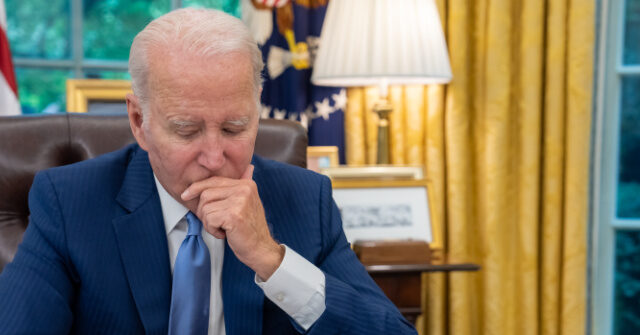During a recent installment of “CNN This Morning,” Kate Bedingfield, a CNN Political Commentator and former Communications Director for President Biden, addressed concerns raised in a Wall Street Journal piece that questioned the effectiveness of President Biden during the Afghanistan withdrawal. The report highlighted instances where key figures like Rep. Adam Smith experienced difficulty in contacting the President. Bedingfield countered that complaints about lack of access to the President are a longstanding element of political discourse, suggesting that it reflects a systemic expectation from Congress rather than a unique failing of Biden’s administration. She emphasized that the dynamic of access to the President involves layers of information dependency, with the President needing to remain focused on actionable insight amidst a plethora of data and perspectives.
Bedingfield recounted her personal experience during the Afghanistan withdrawal, asserting that President Biden was actively engaged with his national security team throughout the crisis. She shared that her time in the Situation Room demonstrated Biden’s dedication to absorbing information and making strategic decisions based on a wide array of inputs. While acknowledging that some members of Congress may have felt sidelined during this critical period, Bedingfield maintained that this sentiment does not indicate a diminished capacity or effectiveness of Biden’s leadership. Rather, it illustrates the inherent challenges of managing a high-stakes situation where clarity and decisiveness are paramount.
The former communications director pointed out that effective leadership during a crisis necessitates filtering diverse opinions to avoid confusion and ensure coherent action. She underscored that overwhelming access to various perspectives could potentially muddy the decision-making process. Therefore, she stressed the importance of maintaining a balance between listening to insights from Congress and prioritizing the counsel of core advisors who can provide the most relevant and critical information needed in real-time crises. This filtered approach is essential to keeping the focus streamlined and effective, an aspect that Bedingfield argued was well-executed by Biden during the Afghanistan situation.
Bedingfield defended Biden’s actions during the tumultuous withdrawal, noting his rigorous approach to questioning military leaders and intelligence officials about the unfolding events. She depicted Biden as a leader who was deeply engaged, consistently seeking clarity on the ground realities and making tough choices informed by rigorous discussions. Her description sought to portray Biden not only as an involved leader but as one who was committed to understanding the complexities of a rapidly evolving situation. By emphasizing this narrative, Bedingfield sought to reassure the audience of Biden’s capabilities at the helm of the presidency during challenging times.
The dialogue on the show also highlighted how the interplay of political dynamics, especially regarding access and decision-making authority, complicates perceptions of leadership effectiveness. Bedingfield’s reflections serve to illuminate the broader implications of a President’s engagement with Congress. The established norms of communication and access can shape members’ perceptions and may lead to frustrations when there are constraints on direct interaction. Bedingfield’s insights suggested that these tensions are not exclusive to Biden but are part of the historical framework of the Presidency—where the weight of informed decision-making outweighs the immediacy of access.
In conclusion, Bedingfield’s comments provided a robust defense of President Biden’s management during a critical juncture in foreign policy. Her narrative underscored the necessity for a President to filter information and focus on credible and structured advice rather than being overwhelmed by external opinions. The discussion highlighted the complexities of leadership and the constant balancing act between accessibility and effective governance in times of crisis. As such, the interpretation of Biden’s leadership style during the Afghanistan withdrawal invites a reevaluation of how access to the President is perceived versus the realities of decision-making in high-pressure environments.

